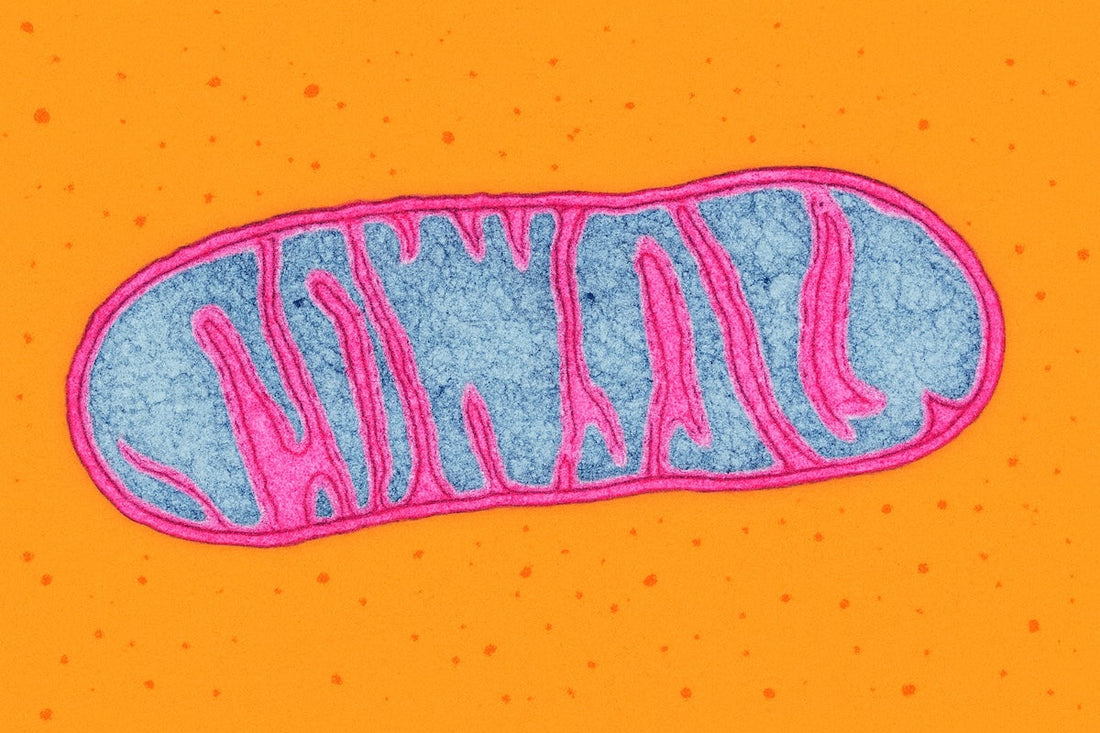Mitochondria and Mental Health: The Science Behind Cellular Energy and Mood

Have you ever felt mentally foggy, emotionally drained, or stuck in a low-energy rut that no amount of coffee can fix? While it’s easy to blame stress, work, or lack of sleep, there’s a deeper player in the story of your mood and mental clarity: your mitochondria.
These tiny powerhouses inside your cells do much more than keep your body moving — they’re also deeply linked to how your brain feels, functions, and recovers from stress. Let's explore the fascinating science behind mitochondrial health and its connection to mental well-being, including practical ways to improve both.
What Are Mitochondria?
Mitochondria are often called the “powerhouses” of the cell, and for good reason. They take nutrients from the food you eat and convert them into adenosine triphosphate (ATP) — the primary energy currency your body uses to function.
But mitochondria do more than make energy. They also play a role in cell signaling, immune response, and programmed cell death (apoptosis). Every cell in your body contains mitochondria — but your brain cells, or neurons, are especially dependent on them.
The Brain’s High Energy Demand
Your brain accounts for just about 2% of your body weight, yet it consumes over 20% of your energy supply. This is because cognitive processes like memory, decision-making, and emotional regulation require a steady and substantial flow of ATP.
Each neuron has thousands of mitochondria, working nonstop to keep your thoughts sharp and your mood stable. When these mitochondria aren’t functioning properly — due to aging, poor lifestyle habits, or oxidative stress — the brain starts to feel it. The result? Mental fatigue, poor focus, low mood, and even increased vulnerability to anxiety and depression.
Mitochondrial Dysfunction and Mental Health
Recent research is revealing a strong connection between mitochondrial dysfunction and common mental health disorders. In particular:
- Depression has been linked to decreased mitochondrial energy production and increased oxidative stress in the brain.
- Anxiety disorders may involve impaired mitochondrial regulation in areas of the brain related to fear and stress.
- Cognitive decline in aging populations is now thought to be closely tied to mitochondrial breakdown over time.
When mitochondria struggle, they produce more free radicals, which can damage cells — a process known as oxidative stress. Over time, this contributes to inflammation and impairs brain function.
In short: when your cells can’t make energy efficiently, your mental health pays the price.
Mitochondria and Neuroplasticity
Your brain is not static. It’s constantly adapting, rewiring, and changing — a process known as neuroplasticity. Healthy mitochondria play a crucial role in this adaptability by providing the energy required for:
- Forming new neural connections
- Repairing brain tissue
- Supporting memory consolidation and learning
Without enough cellular energy, your brain becomes less flexible — making it harder to bounce back from stress or trauma and to learn new things.
Lifestyle Factors That Affect Mitochondrial Health
Thankfully, mitochondrial health isn’t fixed. In fact, your daily habits have a major influence on how well your mitochondria function.
Nutrition
- Antioxidants (like those found in berries, green tea, and dark chocolate) help protect mitochondria from oxidative damage.
- B-vitamins, magnesium, CoQ10, and omega-3s are essential for mitochondrial energy production.
Movement
Regular physical activity, especially aerobic exercise, has been shown to stimulate mitochondrial biogenesis — the creation of new mitochondria. More mitochondria = more brain energy.
Sleep
During sleep, your brain undergoes cellular repair and detoxification. Poor sleep = poor functioning mitochondria.
Chronic Stress
Long-term stress increases cortisol, which impairs mitochondrial efficiency and promotes inflammation. Breathwork, mindfulness, and even short walks can buffer this.
How to Support Mitochondrial Function Naturally
Here are several evidence-backed ways to give your mitochondria (and your brain) a boost:
- Eat a whole-food, antioxidant-rich diet: Think colorful veggies, leafy greens, nuts, seeds, and healthy fats.
- Supplement wisely: Nutrients like alpha-lipoic acid, CoQ10, NAC, B-complex, and magnesium may support mitochondrial health and energy production — especially for people with higher stress or aging cells.
- Try red light therapy: Certain wavelengths of red and near-infrared light have been shown to improve mitochondrial function and reduce inflammation — potentially improving mood and energy levels.
- Improve your sleep: Your mitochondria repair and recharge during deep sleep. Aim for 7–9 hours nightly, stick to a regular schedule, and wind down with low light and calming routines to support cellular recovery.
- Move your body daily: Even brisk walking or light stretching helps mitochondria function better.
Conclusion
Your mood, memory, and mental resilience don’t just come from your mindset — they’re also rooted in your cellular energy. Mitochondria might be microscopic, but their impact on your mental health is massive.
By supporting your mitochondrial health through lifestyle, nutrition, supplementation, and targeted wellness practices, you're not just fueling your body — you're empowering your brain to think clearer, feel better, and adapt faster.
At Newy, we’re passionate about helping you unlock better brain health from the inside out. Our science-backed supplements and holistic routines are designed to support your cells — and your mood.
Disclaimer:
The content provided on this blog and website is for educational and informational purposes only and should not be considered medical advice. Newy supplements are not intended to diagnose, treat, cure, or prevent any disease. Always consult a qualified healthcare professional before starting any new supplement, especially if you are pregnant, nursing, have a medical condition, or are taking other medications.




